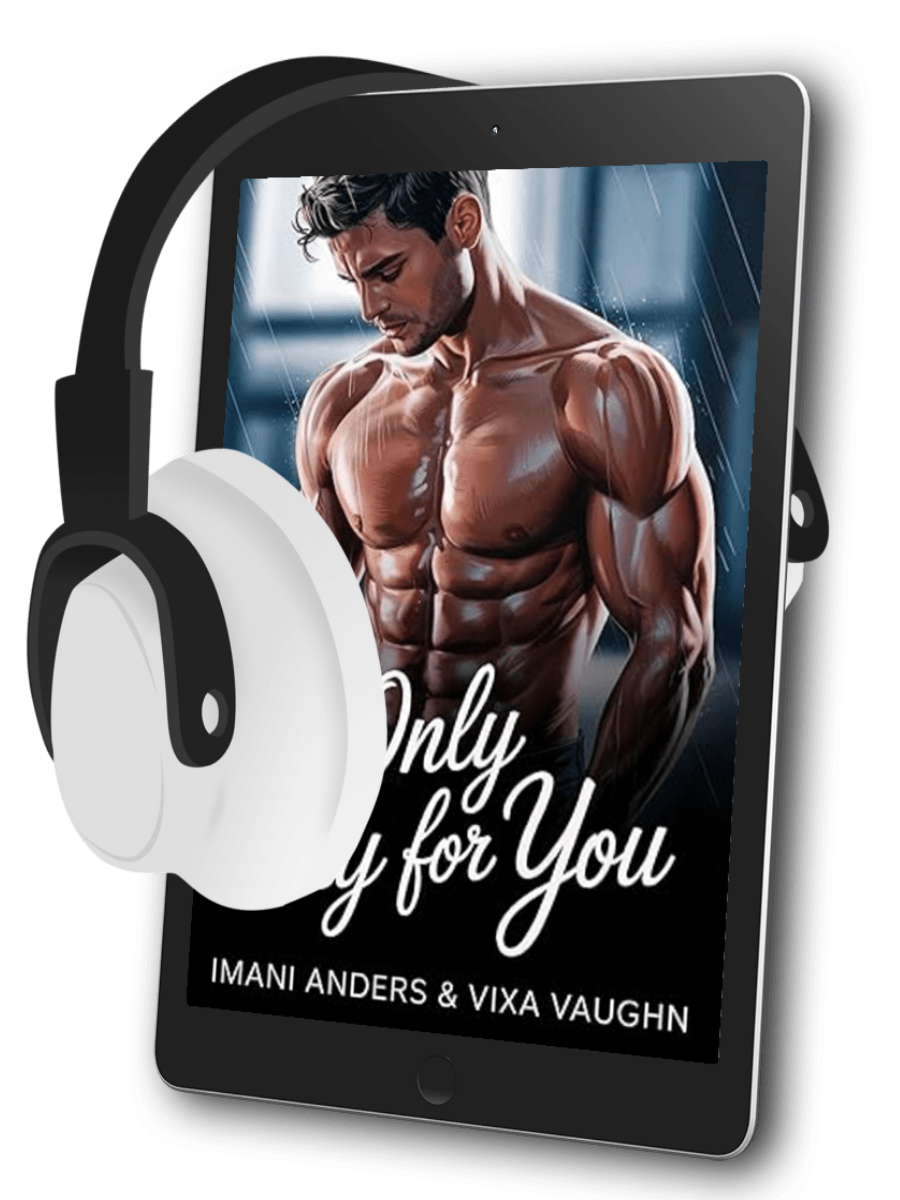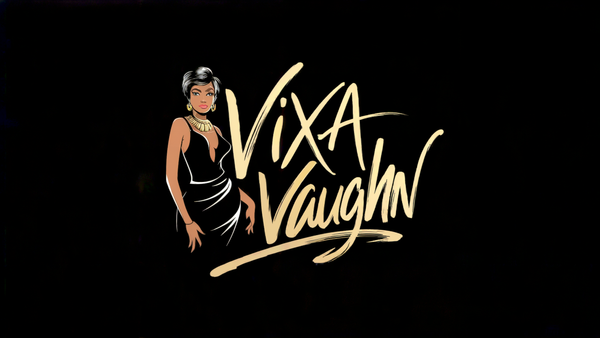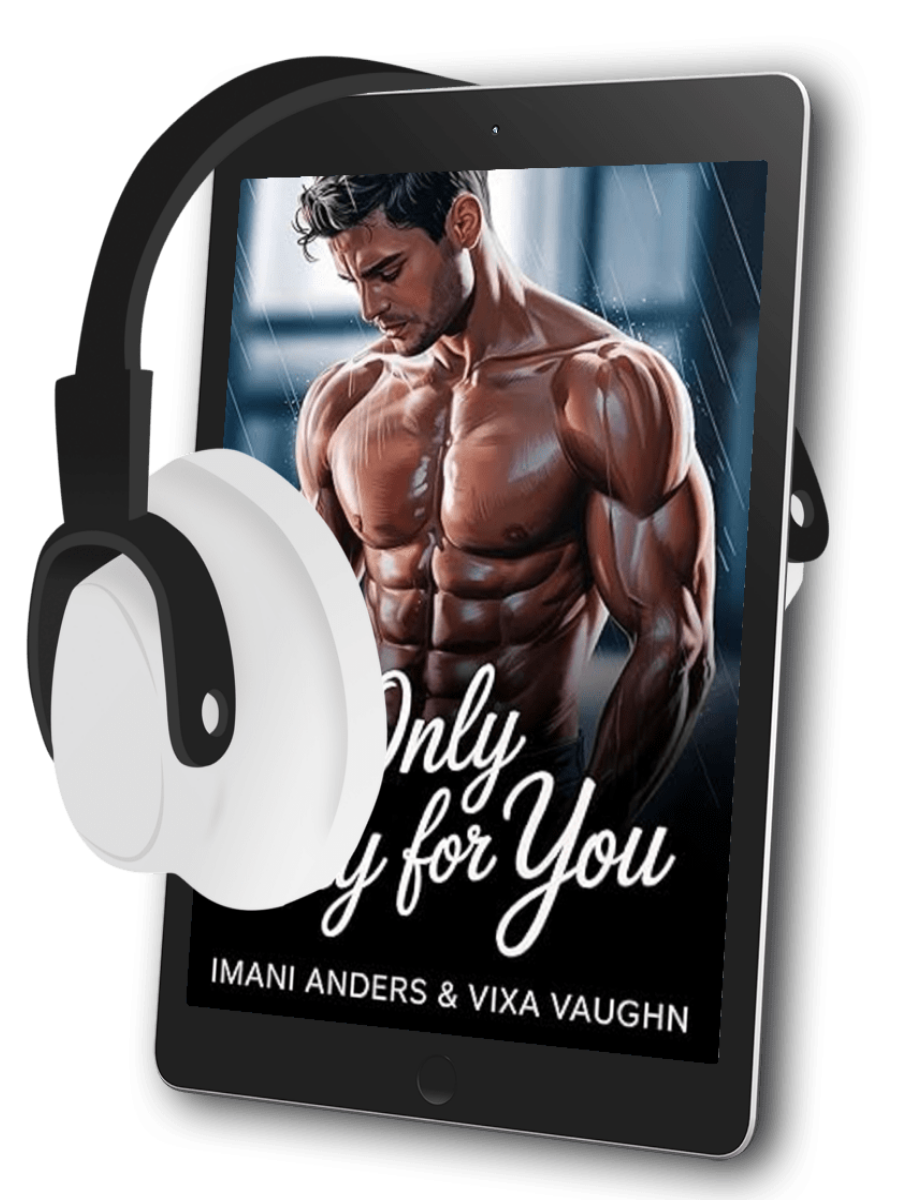Vixa Vaughn Romance Books
I Only Cry For You
I Only Cry For You
Couldn't load pickup availability
- Buy the ebook or audiobook
- Receive download link via email
- Send to preferred e-reader and enjoy!
She says it’s over.
That we were a mistake.
But the problem is...
I don’t let go.
She cries like she means it.
Like she wants freedom, peace, space.
But I’ve seen what she looks like when she comes undone in my arms.
I know what her lies taste like.
I gave her everything.
Time, money, power.
The softest parts of me, ripped out and offered like a gift she never asked for.
And now she thinks she can just walk away?
No.
I’d burn this world before I ever let her leave it thinking I didn’t love her hard enough.
She’s not mine anymore.
She’s worse.
She’s the ghost that wakes me up every night.
And I only cry for one woman.
Even if she’s the one who made me bleed.
Read on for second chance heartbreak, angsty obsession, wounded hero energy, and the kind of love that cuts before it heals. HEA Guaranteed!
Look Inside
Look Inside
Chapter 1
Noa
I spend most mornings at the gallery rewriting labels for art that looks like Pinterest went on a wine bender and decided to dabble in existentialism. Last week, Theo insisted I describe a seven-foot canvas of beige brushstrokes as “a luminous meditation on contemporary silence.” It looked like drywall. Expensive drywall, but drywall nonetheless.
Theo Richman—heir to Richman Real Estate and patron saint of posturing—believes art is less about meaning and more about market value. He collects pieces the way some men collect whiskey: in bulk, for show, and with zero understanding of what makes any of it good. His latest acquisition is a chrome balloon dog that cost more than my student loans. He calls it “ironic.” I call it idiotic.
The gallery is all glass walls and cold light, designed to make everything seem important. I adjust a crooked frame for the third time today, the kind of imperfection Theo claims is “rustic” but sends him into a spiral if he notices. The air smells like lavender diffusers and low-level anxiety. My heels click across the polished concrete as I pass by three interns pretending to have deep thoughts about a sculpture made of found wood and shattered iPhones.
By the time I reach the back office, I’ve mentally cataloged eight pieces we’ll never sell and two that might get picked up if a TikTok influencer decides they’re edgy. I collapse into my chair, swipe open my email, and freeze.
Subject: New Assignment – Sculptor (HIGH PRIORITY).
Fantastic. The email reads like it was dictated through gritted teeth. “You’ve been selected to liaise with a promising but unconventional sculptor for his upcoming feature. We’re counting on your discretion and follow-through.”
Translation: No one else wanted the job, and I’m just masochistic enough not to say no.
I rub my temples and glance at the attached file. Minimal bio, no website, just a Dropbox link to some grainy studio shots. Torso-shaped ironworks, jagged edges, something vaguely apocalyptic. No artist’s statement. No preferred pronouns. Not even a logo. Just a name: Obinna Barin.
The last time Theo used the word “unconventional,” I ended up trapped in a conversation about blockchain art with a man who wore mirrored sunglasses indoors. I should delegate. I should forward the email to one of the interns with a “learning opportunity” sticky note.
Instead, I reach for my bag, grab my coat, and mutter to myself, “Let’s go meet the ego with a blowtorch.”
The building squats on the edge of Bushwick like a concrete afterthought, the kind of place developers slap with the word “authentic” when they want to charge triple for square footage and exposed pipes. Its bricks are the color of dried blood, tagged with years of graffiti and bad decisions, and the front door creaks like it’s trying to warn me off. I ignore it.
Inside, it smells like rust and ambition. Like the guts of the city before it put on a bowtie. The hallway lights flicker overhead, casting jittery shadows across paint-stained floors. I follow the sound of music down a side corridor—something guttural and raw, part drumming, part metal grinding, like a war chant wrapped in feedback. It’s not music you listen to. It’s music that grabs you by the jaw and makes you look at yourself in the mirror too long.
The studio door is wide open. No plaque, no handle, just a yawning entry like the threshold of a cave. I step over a coiled extension cord thick enough to be a fire hazard and instantly regret wearing white linen trousers. They brushed against something black and sticky that might be oil or might be paint, and either way, I’m going to murder Theo for sending me here unprepared.
The space inside is a full-body assault: hot, loud, and vibrating with tension. Scaffolding leans against one wall like a sleeping giant, while hunks of scrap metal are scattered across the floor in vaguely humanoid piles. There’s no discernible organization—just chaos and the illusion of control. Every surface is covered in tools, wires, bolts, dust. A small electric fan rattles uselessly on a crate in the corner, moving exactly zero air.
I then see him. He's standing in front of a partially assembled piece—a contorted spine of rebar and chain-link, already taller than me. He’s barefoot, toes blackened by soot. His back is to me, shirt streaked with what looks like ash or powdered steel, arms corded with muscle from wielding whatever unholy tools created the wreckage around us. The welding mask on top of his head looks like it belongs in a post-apocalyptic film. When he lifts it, the gesture is oddly graceful, like a knight raising his visor before the first charge.
He doesn’t speak. Doesn’t glance in my direction. Just keeps sanding the edge of a curved metal panel like I’m not there. Like I’m background noise. Like I’m… furniture.
I plant my feet and wait, arms folded across my chest. If he thinks I’m just going to stand here and absorb the mood lighting and testosterone, he’s got another thing coming.
“Mr. Barin?” I call out, raising my voice to compete with the shriek of metal on metal.
Still nothing. He doesn’t pause, just adjusts the angle of the steel panel he’s working on like he’s repositioning a lover’s shoulder. I step closer, boots clicking against a concrete floor littered with bolts and shavings and what I think might be the mangled remains of a space heater.
The studio is more than just a mess, it’s an ecosystem of entropy. One corner holds what looks like a melted filing cabinet draped in rusted chain. In another, half-formed torsos jut out from piles of scrap like Pompeii victims mid-scream. A long steel worktable stretches down the center of the room, covered in blowtorches, welding gloves, and coffee cups in various stages of decomposition. Near the window, a dozen tiny figurines stand in a solemn row. Each one sculpted from melted spoons and bolts, no two exactly alike. They look like mourners at some post-industrial funeral.
It’s chaos. Violent, unapologetic, disorganized. I want to hate it. I should hate it. But then something in the far corner stops me cold.
Tucked behind a scaffolding brace, half-obscured by shadows and discarded cable, is a nearly completed sculpture of two figures intertwined. They’re not kissing. Not even touching in the usual way. Just… holding each other. One figure curls inward protectively, while the other arches forward like a shield. The connection between them is all tension and ache and unspoken devotion.
It’s not just beautiful. It’s alive. Like the metal still remembers what it’s like to be warm. I step toward it, forgetting myself for a beat. Then the screech of the sander stops abruptly, and he turns toward me—finally.
Almost instantly, the spell breaks.
His gaze brushes over me with the casual disregard of someone checking the weather. “Don’t touch anything,” he says, voice low and even, like he’s addressing an especially clumsy ghost.
I blink. “Not planning to.”
He raises one brow slightly, as if even that answer is a disappointment, then turns back to his work.
The sculpture’s still there in the corner, glowing faintly in the studio light. But the longer I look at it, the more it feels like a dare.
I square my shoulders and pull out my clipboard like a blade. It’s petty, but I click the pen with extra force. “I’m here from Richman,” I announce, cool and clipped. “Assigned liaison for your upcoming gallery showcase.”
That gets a reaction. Subtle, but there.
He looks up—really looks. The moment his gaze meets mine, I feel it. Not attraction. It’s more like stepping into a too-hot shower before you're ready. His eyes are steel-gray, narrowed and assessing, and the tilt of his mouth suggests that whatever first impression I just made, it wasn’t favorable.
He doesn’t smile. Doesn’t nod. Just tips his chin slightly and mutters, “You don’t look like a curator.”
It’s said like an accusation, not a compliment. I should rise above it. I should smile sweetly, take the high road, and redirect.
Instead, I tilt my head and fire back before I can stop myself. “And you don’t look like someone who showers, so I guess we’re both full of surprises.”
There’s a pause. Not long, but thick enough to hang in the air like smoke. One corner of his mouth twitches, like the ghost of a smirk might’ve considered forming and thought better of it. Then he turns away and starts sanding again, like I’m not worth the power it would take to engage.
He’s maddening. Arrogant. Impossible.
Yet, some traitorous part of me wonders what he’d sculpt if I gave him a lump of nothing and asked him to make it feel.
I click my pen again—mostly for effect, partly to keep myself from hurling it at his head, and start rattling off Theo’s checklist like I’m reading from scripture. “Artist bio. Statement of intent. Three hi-res press photos. Materials list for insurance. Projected timeline for completion.”
No response.
I keep going. “Price estimates. Preferred lighting notes. Installation diagram if applicable.”
Still nothing. He doesn’t write anything down. Doesn’t ask questions. Doesn’t even pretend to care. Just keeps sanding the edge of his sculpture with maddening focus, like I’m the background noise in his private symphony.
I move toward the back of the studio, partly to breathe, partly to confirm that yes, I really am the only person in this dynamic doing anything that resembles a job. That’s when my eyes find it again—that twisted, half-melted, three-headed figure in the shadows. I study it a little longer this time, trying to piece together what it's supposed to be. There’s power in the shape, yes, and clear technical mastery. But something about it feels... unfinished. Contrived. Like a performance in steel that doesn’t quite know its own name.
“This one is visually strong,” I say, loud enough for him to hear over the sanding. “But emotionally confused.”
The tool stops mid-motion. I don’t realize how loud the silence is until it arrives.
He straightens slowly, the rasp of his apron brushing against his jeans. Then he turns his head. Enough for me to be able to see the edge of his jaw tense, the faint twitch in the muscle below his cheekbone.
“You think art has to explain itself?” he asks. The question is quiet but laced with precision, like a scalpel slicing through gauze.
“No,” I reply, matching his tone, steady as a heartbeat. “But I think it has to say something. Otherwise, it’s just expensive clutter.”
He stares at me for a moment longer than necessary. Not with anger or with admiration. With something more dangerous—curiosity.
That brief space between us charges like a live wire, silent but undeniable. His hands, still dusted with metal shavings, flex at his sides like he’s holding something back—words, maybe. Or something heavier.
I don’t look away. I won’t be the first. And in that taut, breathless space, I realize something has shifted.
By the time I leave, I’ve got a notebook full of half-finished tasks and a tightness in my jaw I can’t unclench. He didn’t give me a single straight answer. Not about timelines, press photos, or anything except that one, sharp-edged exchange that’s still echoing between my ears like a tuning fork that hasn’t quite stopped humming.
I should be pissed. And I am. But not just at him.
I’m angry at how his work got under my skin—how those hunched, melted forms said more in silence than half the monologues Theo commissions from Ivy-League artists with generational wealth and nothing to say. I’m angry that his cluttered wreck of a studio felt more alive than the sterile white vault I go to work in every day. I’m pissed that I saw that sculpture of the two figures curled inward, cracked open, honest, and felt something I haven’t felt since I walked away from my last real job.
Hope. Or maybe recognition. Both are equally dangerous.
His art was messy. Unpolished. Raw. Uncouth. But it had truth in it, the kind that doesn’t ask permission to exist. And I hate that I could see it so clearly. I hate that it called to something inside me I’ve spent the last year locking down with denial.
I get halfway to the subway before I realize I’m still gripping the checklist like a lifeline. I tell myself I’ll just email him the deadlines and leave it at that. No reason to waste another minute in that man’s chaos.
No reason to go back. But even as I tell myself the lie, I know the truth.
I will go back.
Share


